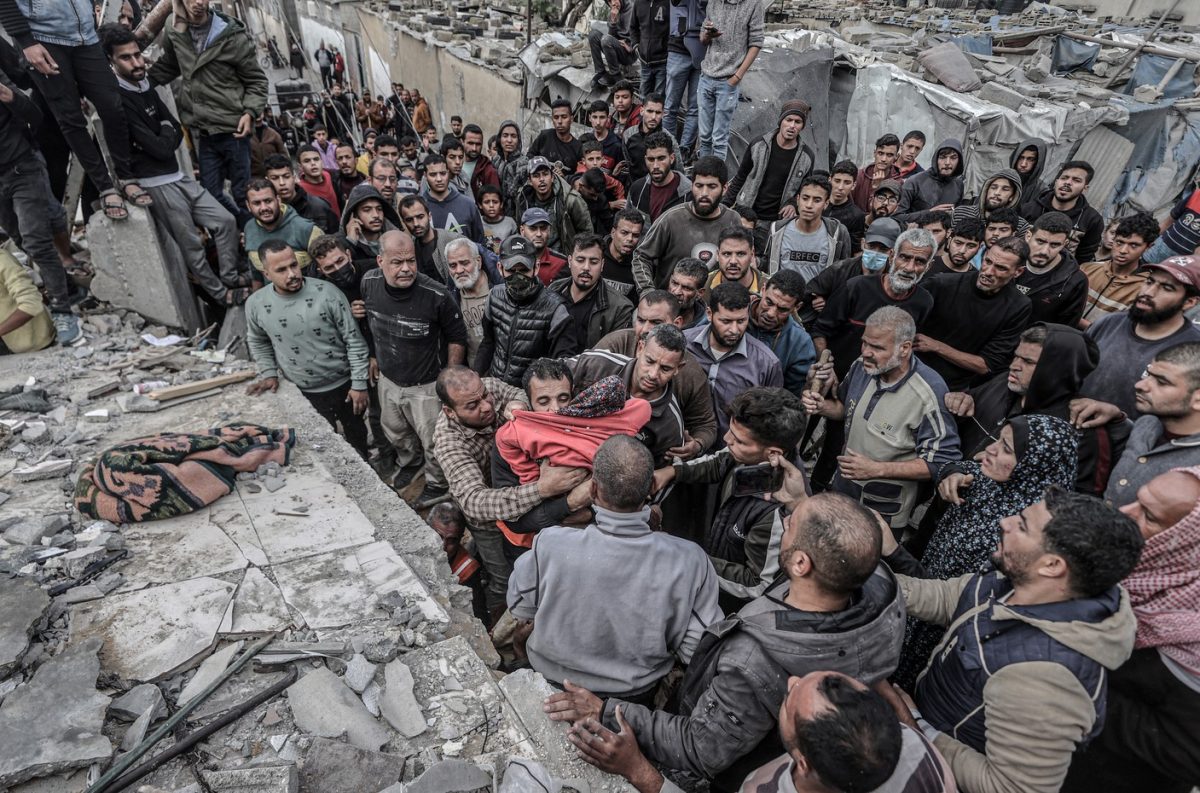Khalil al-Hayya, a member of the group’s political bureau, said that Hamas “is serious about releasing Israeli captives within the framework of an agreement” that also ensures the release of thousands of Palestinian prisoners in Israeli jails.
He told Al Jazeera Arabic in a televised interview that Hamas will not accept a truce without a permanent ceasefire and a complete halt of Israel’s assault on the Gaza Strip.
The Israeli bombardment has killed more than 34,000 people – mainly women and children – since the current conflict started in October.
An “unhindered return” of Palestinians across the besieged enclave to their homes, along with the reconstruction of Gaza and “an end to the crippling siege” imposed on it were among the four conditions that al-Hayya reiterated.
Hamas had submitted its response to a United States amendment on April 13 and is still waiting for a reply from Israel and the mediating parties, he added.
White House national security adviser Jake Sullivan stated on Friday that he saw fresh momentum in talks to end the war in Gaza and return the remaining Israeli hostages.
“I believe that there is a renewed effort under way involving Qatar and Egypt as well as Israel to try to find a way forward,” Sullivan told MSNBC in an interview.
“Do I think that there is new momentum, new life in these hostage talks? I believe there is.”
Talks on a ceasefire between Israel and Hamas have been in limbo with the two sides showing few signs that they are ready to compromise on their demands.
But international mediators – Qatar, the US and Egypt – have been engaged in intense behind-the-scenes talks to secure a deal.
Top Israeli officials have repeatedly called Hamas’s demands “delusional” and have claimed an Israeli withdrawal from the Gaza Strip would amount to losing the war.
Egyptian, Israeli and US officials reportedly held in-person and remote meetings on Wednesday that sought concessions to break the deadlock in the months-long negotiations.
On Friday, Egypt sent a delegation to Israel with the hope of brokering a ceasefire agreement, two officials told The Associated Press news agency.
Top intelligence official, Abbas Kamel, was leading the team and planned to discuss a “new vision” for a prolonged ceasefire in the enclave, an Egyptian official said.
Friday’s talks were set to be initially focused on a limited exchange of captives for Palestinian prisoners and the return of a significant number of displaced Palestinians to their homes in northern Gaza “with minimum restrictions”, the unnamed official added.
Meanwhile, the US and 17 other countries issued an appeal for Hamas to release captives as a pathway to end the crisis in Gaza.
“We call for the immediate release of all hostages held by Hamas in Gaza now for over 200 days,” read the statement on Thursday by the leaders of Argentina, Austria, Brazil, Bulgaria, Canada, Colombia, Denmark, France, Germany, Hungary, Poland, Portugal, Romania, Serbia, Spain, Thailand and the United Kingdom.
It added that the “deal on the table to release the hostages would bring an immediate and prolonged ceasefire in Gaza, that would facilitate a surge of additional necessary humanitarian assistance to be delivered throughout Gaza, and lead to the credible end of hostilities”.
Hamas responded to the letter on Friday, saying it regretted that the countries had not emphasised “the necessity of a permanent ceasefire” in Gaza and the withdrawal of Israeli forces from the territory.
The Palestinian group called on the US and the international community to apply pressure on Israel to end “the crime of genocide” being committed against Palestinians in Gaza.
The back-and-forth comes as Israel has significantly increased its military activities across the enclave and is proceeding with plans for a ground invasion of Rafah in the south, where some 1.5 million displaced Palestinians are taking shelter.
The humanitarian situation in Rafah – bordering Egypt – and across Gaza remains dire, with the United Nations and others repeatedly stressing the need for Israel to allow more aid in.
Eleven-year-old Husam is one of more than 600,000 children who have sought refuge in Rafah, which was designated a “safe zone” even as the Israeli military continues to pound it from the air in preparation for a ground assault.
“We’re afraid people will resort to killing each other for food,” he told Al Jazeera, adding, “A person’s psyche wears out with fear. It’s a slow death.”
